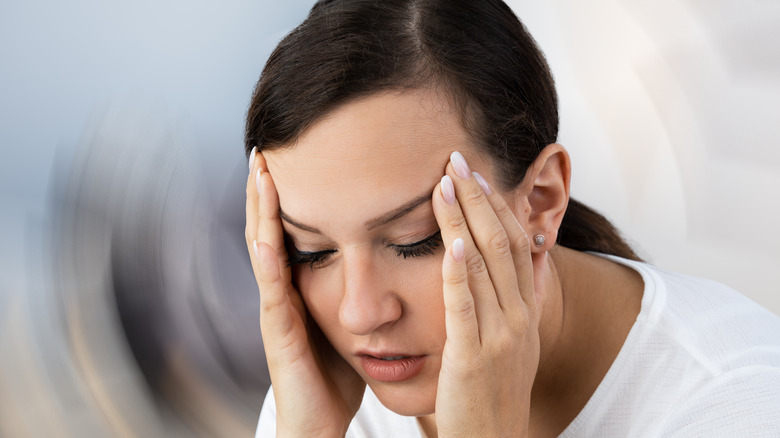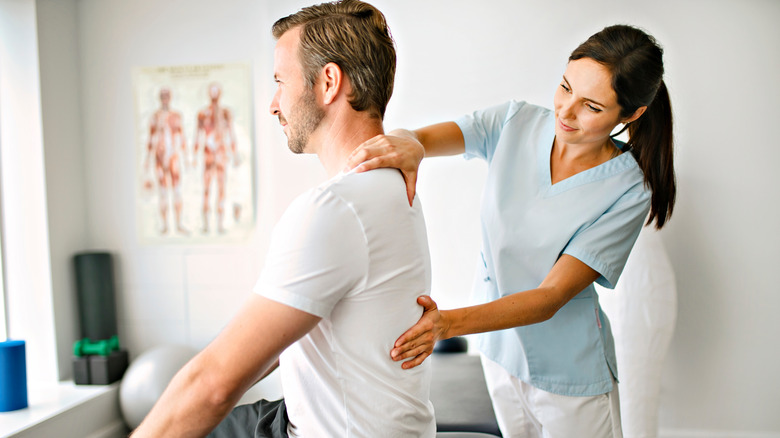This Is What Really Causes Vertigo
Vertigo is a type of dizziness characterized by a sudden spinning sensation. Not to be confused with lightheadedness, vertigo can be a symptom of many different conditions that affect the inner ear (via Medical News Today). Some common conditions that cause vertigo include benign paroxysmal positional vertigo (BPPV), Ménière's disease, vestibular neuritis, and labyrinthitis.
BPPV is the most common cause of vertigo and occurs when crystals of calcium carbonate become dislodged and fall into the inner ear. This causes the brain to receive inaccurate signals that your head is moving, which can lead to vertigo. Ménière's disease, on the other hand, happens when fluid builds up in the inner ear, resulting in episodes of vertigo. Ménière's disease typically affects adults between the ages of 40 and 60 years old. Meanwhile, vestibular neuritis and labyrinthitis are due to infections that cause inflammation, leading to symptoms including vertigo, ear pain, and tinnitus.
How to treat vertigo
The treatment for vertigo largely depends on what kind of condition or disorder is causing it. In many cases, vertigo will eventually resolve on its own. However, others may require additional treatment. Fortunately, there are a few treatments that can help provide symptomatic relief for vertigo and other symptoms associated with it (via Healthline).
For instance, vertigo can be treated with medications like meclizine. Meclizine is an antihistamine that is highly effective at relieving motion sickness and vertigo. It is also commonly used to treat Ménière's disease. There are also some exercises you can do to treat vertigo and help minimize your discomfort. In fact, vestibular rehabilitation therapy (VRT) is a specialized form of physical therapy that can greatly benefit people who have vertigo. VRT involves gaze stabilization, habituation, and balance training exercises, which can help relieve dizziness, improve control of your eye movements, and boost steadiness. If your vertigo is severe, however, you may need to consult a physiotherapist to help with these exercises.


